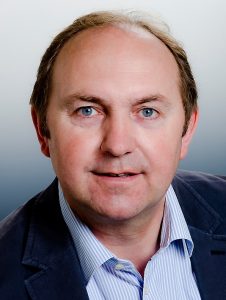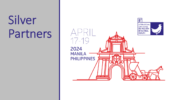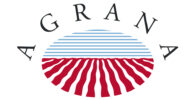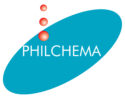 Joël Doré (INRA, France)
Joël Doré (INRA, France)
Beside his function as Research Director at INRA, Joël is Scientific Director of MetaGenoPolis, a pre-industrial demonstrator in quantitative and functional metagenomics funded by the national “Futures Investment” program. Joel is former head of the lab Functionalities of the Intestinal Ecosystem, and vice-director of the Micalis Institute “Food and Gut Microbiology for Human Health”. Joel joined INRA in 1983 and received his PhD from the University of Illinois at Urbana-Champaign, USA, in 1988. He trained as gut microbial ecologist and developed expertise in intestinal metagenomics towards diagnostic and prognostic applications as well as food-microbe-host interactions. With over 30 years of academic research and over 200 publications (H Index 53), Joël is world expert in the field of gut microbial ecology and intestinal microbiome. He aims to provide a better understanding of man-microbes symbiosis towards personalized preventive nutrition and precision medicine. He chairs the Gut Microbiota For Health scientific web-platform.
Joel is co-founder and scientific advisor of MaaT Pharma, a startup company dedicated to provide safe and standardized microbiotherapy solutions for the reconstruction of host-microbes symbiosis in the context of programmed clinical interventions inducing dysbiosis.

Lisa Williams (Swansea, UK)
Lisa was awarded her PhD from the University of Bristol in 2009 with research focusing on optimisation of detection methods for Campylobacter spp. Prior to commencing her PhD in 2006, she worked for the Health Protection Agency after being awarded a Masters degree from Bristol in 2002. Lisa worked at the School of Veterinary Science at Bristol from 2006 to 2015 when she moved to Swansea University. Lisa has extensive experience and knowledge of foodborne pathogens, particularly Campylobacter spp. including in vitro and in vivo analysis and in conventional culture of bacteria, molecular methods, antimicrobial resistance, cell culture and animal infection trials.
Her current research is focusing on extra-intestinal spread of Campylobacter in broiler chickens and whether the genetic background of Campylobacter strains leads to enhanced ability to spread from the gut, irrespective of the state of the host. Lisa’s previous research was the first to link infection of broiler chickens with Campylobacter to an increased incidence of hock marks and pododermatitis and potential differences between breed and rearing systems. In 2018, Lisa was a runner-up in the Swansea University Research and Innovation Rising Star award.
 Mark Stevens (Roslin, UK)
Mark Stevens (Roslin, UK)
Mark Stevens is Chair of Microbial Pathogenesis and Deputy Director of The Roslin Institute at the University of Edinburgh. His laboratory studies Salmonella, Campylobacter and Escherichia coli infections in farmed animals, with emphasis on the bacterial and host factors influencing persistence, pathogenesis and protection. He obtained a first class honours degree in Microbiology & Virology at the University of Warwick in 1992 and completed doctoral training on the regulation of capsule expression in pathogenic E. coli at the University of Leicester in 1996.
After a 3 year postdoctoral project on influenza virus replication and pathogenesis at the University of Reading he joined the Institute for Animal Health (IAH) in 1999, initially to study E. coli O157 colonisation in cattle.
Over the next 12 years, his interests at IAH diversified to include other farm animal and zoonotic pathogens. He was awarded the 2007 Intervet Dieter Lutticken prize for research that has advanced the 3Rs in the development of veterinary medicines, reflecting his use of surgical models to study enteritis and the application of novel sequence-based methods to assign phenotypes to large numbers of bacterial mutants or strains screened in pools in vivo.
 Sam P. Brown (Georgia Tech, USA)
Sam P. Brown (Georgia Tech, USA)
Sam P. Brown is an evolutionary biologist in the School of Biology at the Georgia Institute of Technology. Following a Ph.D. from Cambridge University (2001) and postdoctoral fellowships in France and Texas, Brown has held faculty positions at Oxford and Edinburgh before joining Georgia Tech. Brown is a leader in the study of bacterial social interactions (communication, coordination and cooperation among cells), and their consequences for disease. His work combines theory and experiment, evolutionary biology and molecular microbiology, to understand the coupled dynamics of microbial gene-expression, ecology and evolution. Brown’s central research challenge is to understand how bacterial social interactions shape disease traits (virulence, transmission, emergence, resistance) and also present new opportunities for control.

Michael Hess (Vienna, Austria)
Michael Hess has strong interests in infectious diseases in poultry focusing on host-pathogen interaction, the development of new protection strategies and new diagnostic tools. He was the first President of the European College of Poultry Veterinary Science (ECPVS) and acts in several editorial boards. Basic research on Histomonas meleagridis is accomplished by in vivo studies, the organization of the International Symposium on Parasite Infections in Poultry and contribution to blackheaddisease set up to raise awareness for histomonosis.
 Adrian Smith (Oxford, UK)
Adrian Smith (Oxford, UK)
Adrian L. Smith is a comparative immunologist who has strong interests in the biology of the enteric immune system in health and disease. Since 2008 his group dealing with Comparative Infection and Immunology has been based at the Department of Zoology, University of Oxford having previously been at the Institute for Animal Health, (now Pirbright Institute) where he developed a strong interest in avian immunology. Prior to his time at the IAH, Adrian worked on the function of TCRgd T cells with Adrian Hayday at Yale. His interests are diverse and cover the comparative biology of both innate and adaptive immune systems in a range of organisms. Core active areas include development and application of TCR and BCR repertoire analysis as well as the function and evolution of pattern recognition receptors. In recent years the group has also been working on the relationship between the microbiome and development of immune competence in the gut.
 Steven C. Ricke (Arkansas, US)
Steven C. Ricke (Arkansas, US)
Dr. Steven C. Ricke received his B.S. degree in Animal Science (1979) an M.S. degree in Ruminant Nutrition (1982) from the Univ. of Illinois and his Ph.D. degree (1989) from the Univ. of Wisconsin with a co-major in Animal Science and Bacteriology. From 1989 to 1992 Dr. Ricke was a USDA-ARS postdoctorate in the Microbiology Department at North Carolina State Univ. He was at Texas A&M Univ. for 13 years and was a professor in the Poultry Science Dept. with joint appointments on the Food Science and Technology, Molecular and Environmental Plant Sciences, and Nutrition Faculties and the Veterinary Pathobiology Dept. In 2005, he became the first holder of the new Donald “Buddy” Wray Endowed Chair in Food Safety and Director of the Center for Food Safety at the University of Arkansas. He is also a faculty member of the Dept. of Food Science, the Dept. of Poultry Science and the Cellular and Molecular Graduate program. He received the Poultry Sci. Assoc. Research Award in 1999 and the American Egg Board award in 2006.
He is a member of the United Egg Producers Food Safety Scientific Advisory Council, and served as co-founder and former President of the Arkansas Association of Food Protection (AAFP). He was named an AAFP Fellow in 2015 and a Poultry Science Association Fellow in 2017. Dr. Ricke’s research program is primarily focused on virulence and pathogenic characteristics of foodborne salmonellae. Dr. Ricke’s Salmonella research projects have emphasized studies on the growth, survival and pathogenesis of the organism under conditions encountered during food animal production and processing.
 Ilias Kyriazakis (Newcastle, UK)
Ilias Kyriazakis (Newcastle, UK)
Ilias Kyriazakis is the Professor of Animal Management and Health at Newcastle University in the UK. His research interests are in the development of management strategies that enhance animal health and welfare, whilst minimising the environmental impact of livestock systems. He has worked with most livestock species, including poultry, and during the last 5 year has coordinated PROHEALTH: Sustainable control of pig and poultry diseases, the largest animal health project ever funded by the EU.
The current interests of his group is the introduction of novel feed ingredients for pig and poultry to enhance the sustainability of their systems, and the introduction of digital innovation for early disease detection in livestock.
 Filip Van Immerseel (Ghent, Belgium)
Filip Van Immerseel (Ghent, Belgium)
Filip Van Immerseel received a Master in Bio-engineering Sciences at the Catholic University of Leuven (KUL) in 1999, and a Master in Laboratory Animal Sciences at Ghent University in 2004. He received a PhD in Veterinary Medical Sciences at Ghent University in 2004, studying intestinal immune cell infiltration after Salmonella infection of chickens, and environmental triggers in the gut that influence Salmonella invasion. After a post-doc period, he was appointed as Research Professor by Ghent University in 2008. Currently he is Professor at the Department of Pathology, Bacteriology and Avian Diseases of the Faculty of Veterinary Medicine at Ghent University in Belgium and is head of a research group that studies host-bacterium interactions. Filip Van Immerseel currently has more than 170 scientific papers in international peer-reviewed journals, has written book chapters and edited books on Salmonella and Clostridium perfringens and is a well-known speaker at international events. He is editor of the journal Avian Pathology and involved in many international collaborative research networks.
 Maarten De Gussem (Poeke, Belgium)
Maarten De Gussem (Poeke, Belgium)
Maarten De Gussem graduated as a DVM from University of Ghent Veterinary School in 2000 with a thesis on Infectious Bursal Disease Virus at the University of Arkansas, USA. He began working in the field at DEGUDAP group practice in France, The Netherlands and Belgium, dealing with layers, breeders, broilers and turkeys.
In 2001, Maarten joined the division of J&J Global Poultry Technical Manager at Janssen Animal Health, with focus on coccidiosis, gut health, helminthosis, histomonosis and red mite. In 2009, Vetworks was founded by Maarten, servicing the poultry industry with a global team of specialists and providing support on poultry health topics all over the world, with focus on mycoplasmosis, general gut health and coccidiosis
Maarten De Gussem is also author of Broiler Signals.



























































Comments are closed.